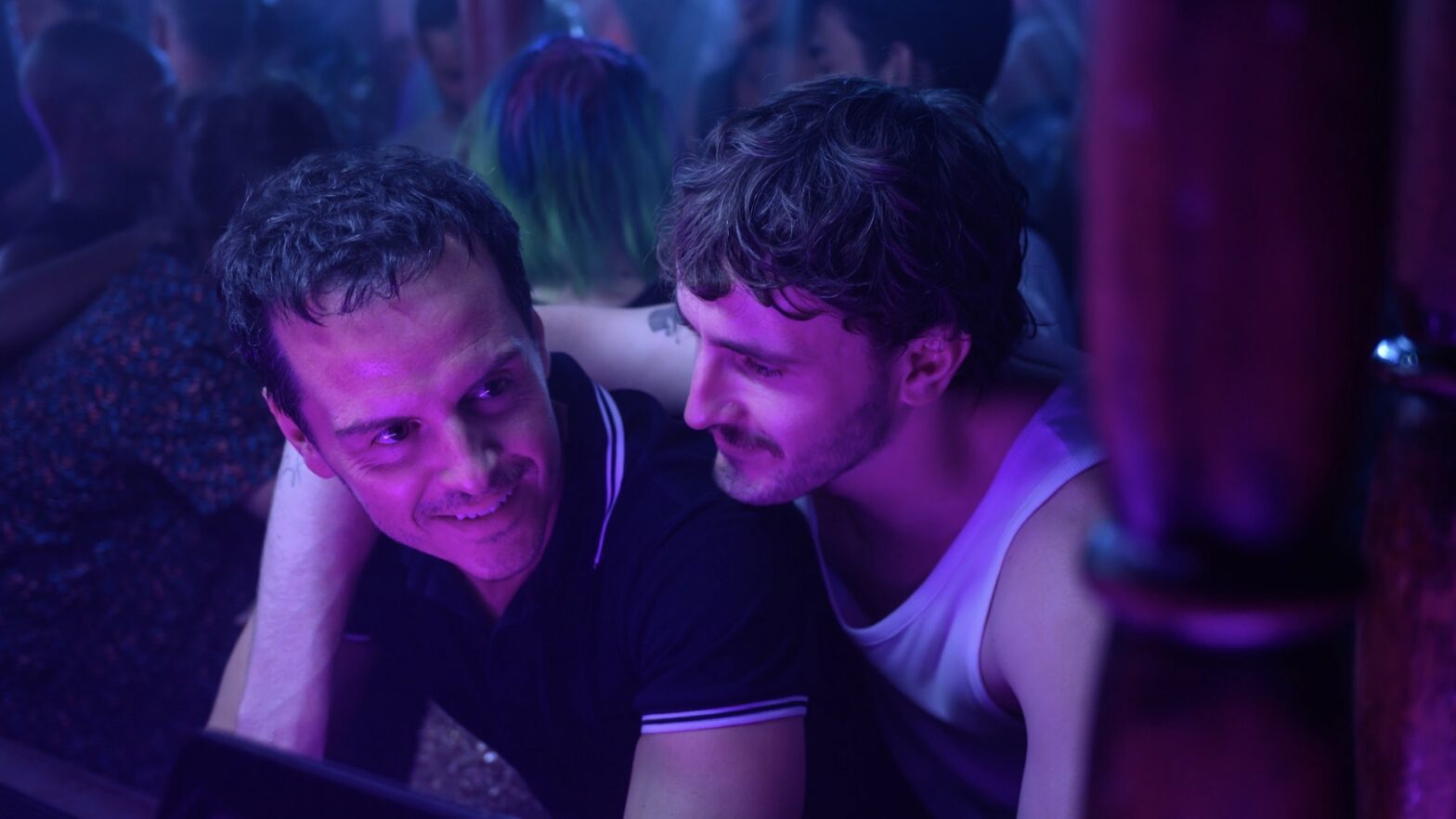The New School Free Press’ Alexiah Syrai Olsen attends the press screenings for The New York Film Festival.
Nowadays in Hollywood, we see more films depicting depressed men on the brink of destruction because of the life they chose, like Darren Aronofsky’s “The Whale,” Charlotte Wells’ “Aftersun,” or even Olivia Wilde’s “Don’t Worry Darling.” Directed by Andrew Haigh, “All of Us Strangers” brings a complex, chronic loneliness to the trope of the morose middle-aged man, but fails to control the viewer’s attention.
Haigh’s film has been highly anticipated, thanks to the two lead actors, Andrew Scott and Paul Mescal, who have garnered a massive fanbase from their previous roles. “All of Us Strangers” is playing at the New York Film Festival for only 4 days and then will be released to theaters on December 22, 2023, for a limited time only.
“All of Us Strangers” follows Adam, portrayed by actor and recipient of the British Academy of Film and Television Award, Andrew Scott, and Harry, played by Oscar nominee Paul Mescal. As the only residents in a new, upscale highrise overlooking London, the two men find themselves in a budding relationship. During this time Adam embarks on a long overdue rekindling with his estranged parents. “All of Us Strangers” examines the intricacies of a parent-son relationship competing with the dynamic of two queer lovers.
Adam is a lonely screenwriter who can’t find his rhythm. Depressed, he spends his days lying on the couch, watching the evening fade to darkness. When Harry first appears, he is seen as a drunken, lonely neighbor, who Adam thinks is eerie, later changing his opinion with further character development with Harry. Opening the front door to his apartment, Adam finds Harry, and the two struggle to converse in an awkwardness so loud it pushes its way into the theater.
It’s difficult not to see Mescal as the misunderstood loverboy he plays in Hulu’s “Normal People,” but the ‘strange guy next door’ image wasn’t exactly fighting its way into the scene. Mescal’s approach was not particularly feeling the way the role was intended, making the dialogue between the two feel unconventional and impractical. Many actors could have played the role of Harry and would have fit the description to a T. The script sets up Mescal’s dialogue as disturbing, but with his portrayal of the character, it hovers between witty and uneasy in the wrong ways.
With scenes containing numerous love proclamations that progress the characters well, they fall right into place with their tropes; a loving family and caring boyfriend. Adam’s rambling, which he does continuously throughout the film, shows his internal struggles with connection to others, while Harry displays his care for Adam through a constant willingness to listen. During these moments are flawless, long-form monologues that deftly develop the relationships between the characters.
Best known for his role as a forbidden ‘hot priest’ in Amazon Prime’s “Fleabag,” Andrew Scott continues to astonish in his role as a lonely man who can’t find someone to love. Adam’s intimate conversations with both his mother and Harry parallel each other. With his mother and boyfriend caring for Adam relentlessly, Adam shows how he is surrounded by love but in both a familiar and romantic form, often having deeply emotional conversations with the two. Scott, with his talent to create a sadden love emerging from Adam’s ingrained depression, brings emotional resilience to his character. He empowers Adam to navigate the tension of the beginning stages of relationships while maintaining vulnerability on screen.
What should be a celebratory scene at a club, with Adam and Harry partying with drugs and alcohol, quickly becomes one you wish to be over, with the cinematographic choices making viewers feel unsettled and annoyed. A movie still studied today for its remarkable cinematography, Paul Thomas Anderson’s “Boogie Nights,” uses many club scenes that feature bright lights, music, and partygoers swerving in and out of the frame. Jamie Ramsay, cinematographer for “All of Us Strangers” creates a sea sickness for the watcher that makes them beg for the scene to be over. Viewers aren’t able to truly grasp the raw love between the two at the club let alone see the two lovers at all. Most of the scene is littered with orbs of light that cross fast through the frame and distract the audience from the main point: love is everywhere.
The foundation of the plot is there in “All of Us Strangers,” but the execution of the cinematography and the acting choices fell short. Crediting Andrew Scott’s elaborate work, “All of Us Strangers” may still receive award nominations, likely stemming from the protagonists’ celebrity status rather than performance. Like Adams’ mother said, “terror is being alone,” that being only one nomination at the Oscars; Best Lead Actor for Andrew Scott.








Leave a Reply